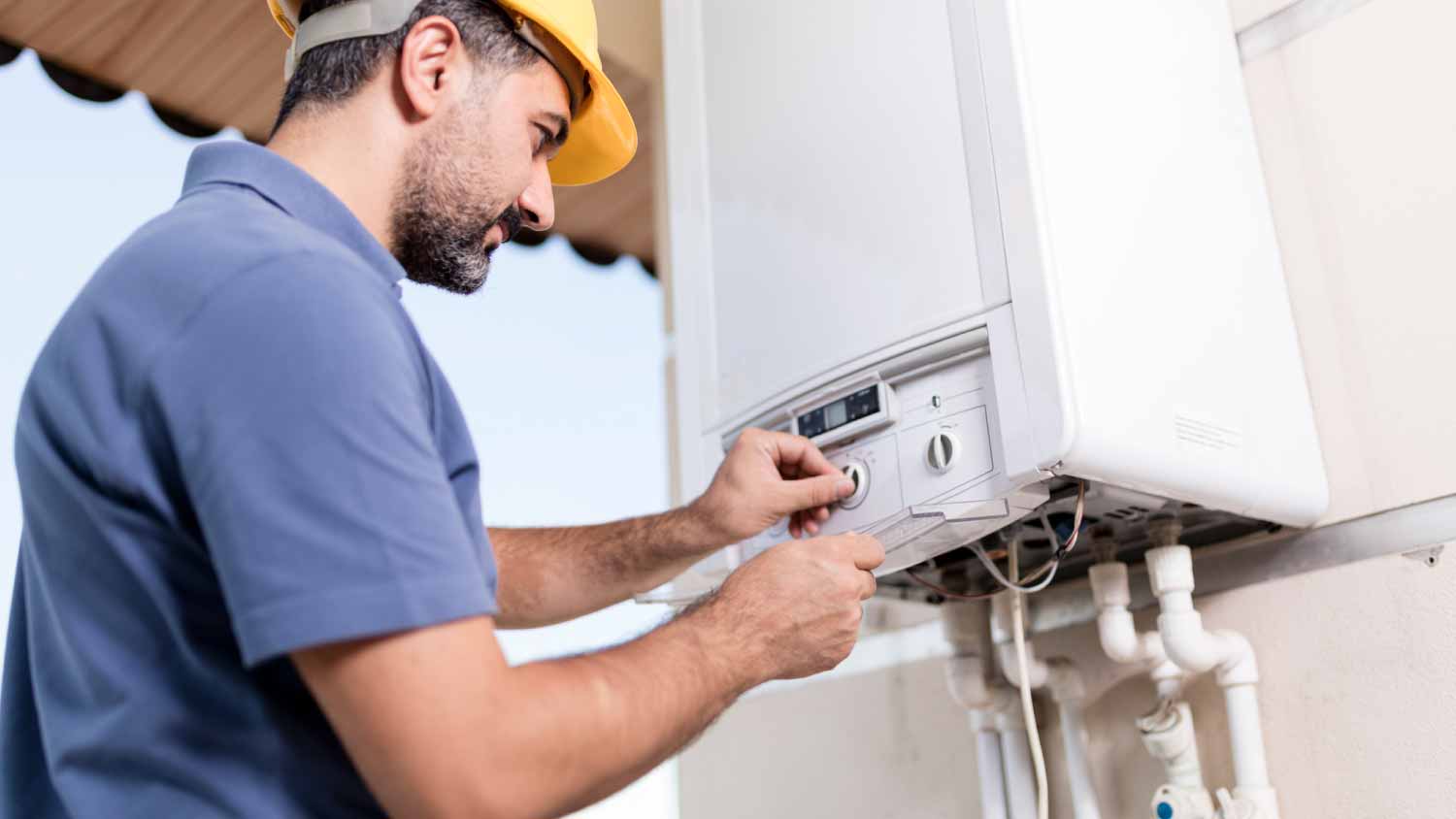How Much Does It Cost to Install a Heat Pump Water Heater? [2025 Data]
The average cost to install a heat pump water heater is $4,200, but it can range between $3,200 and $4,700, depending on the type, size, and location of the heater.
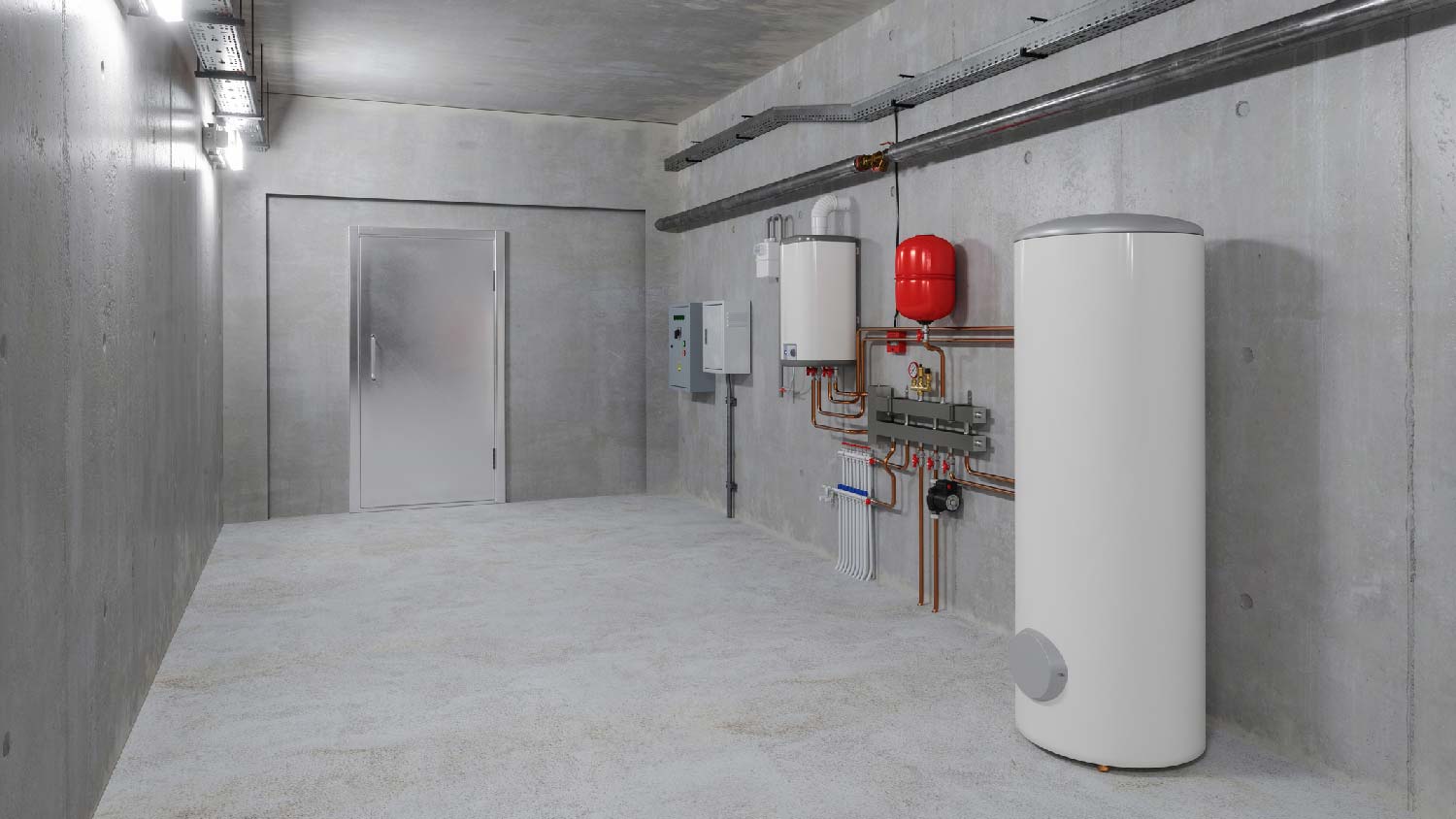

Heat pump water heaters work by capturing ambient heat.
They are more energy efficient than traditional water heaters.
The two biggest cost factors are labor and tank type.
Most heat pump water heaters are combo units with integrated heating.
The cost to install a heat pump water heater is $4,200 on average. Depending on the heater size and type, you’ll see costs ranging from $2,800 and $8,000. If you’re wondering what a heat pump water heater is, or how you install one, you’re certainly not alone. This appliance is far from the simplest one in your home, but once you get past the cost, you can see significant energy savings month by month. Learn all the factors that influence the cost of installing a heat pump water heater at your home.
Heat Pump Water Heater Installation Cost Factors
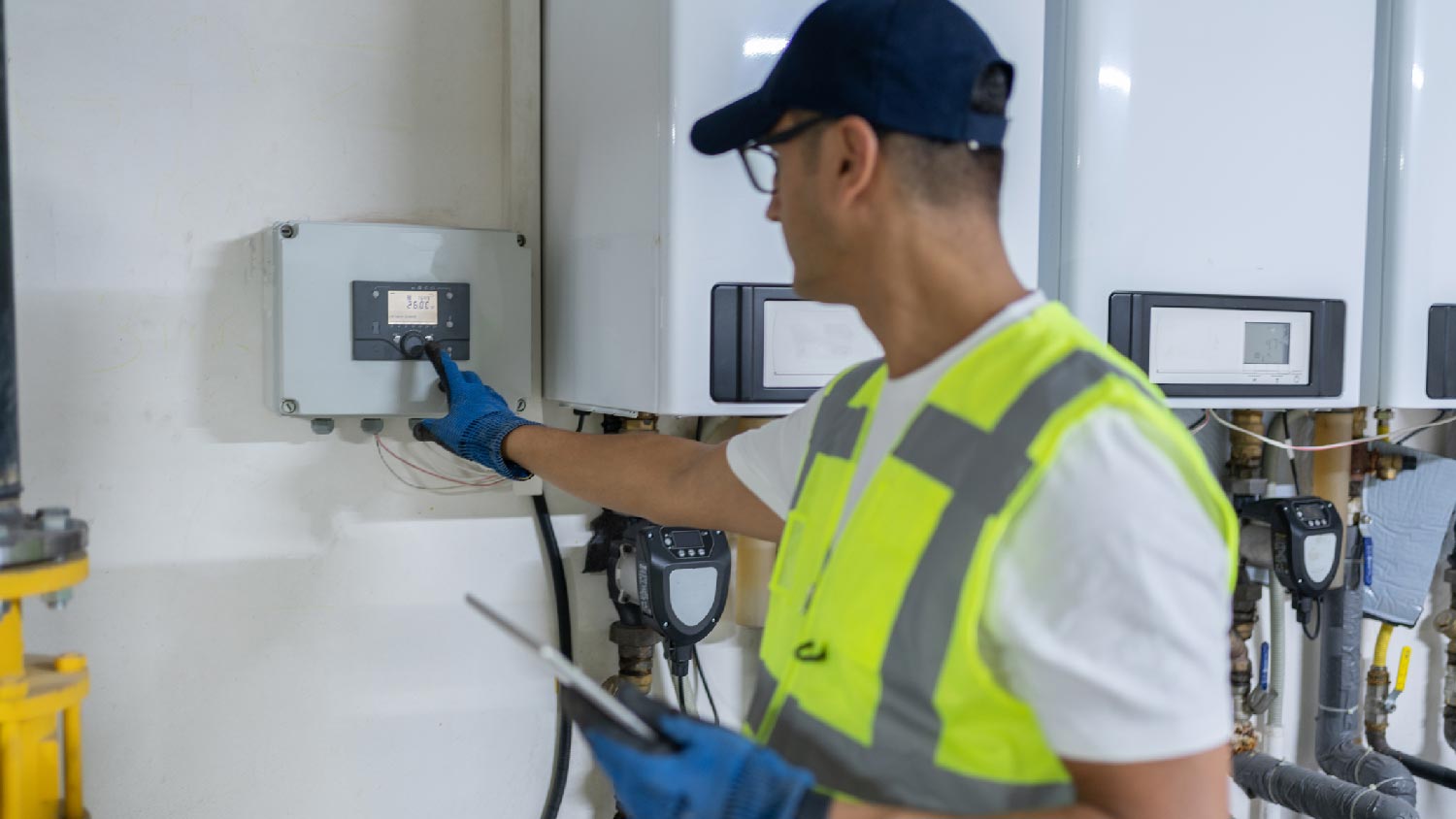
A heat pump water heater isn’t a stand-alone appliance. It’s linked to many other parts of the home—mainly plumbing and electrical. Because of this, it needs to work in lockstep with the rest of your home, meaning each home will have different final costs depending on the factors below.
Type
When most people consider heat pump water heaters, they think of the conventional type, where the heat pump and water tank are integrated into a single unit, taking heat from the air. However, that's only one type.
Split-system water heaters have an indoor tank with an outdoor compressor and are designed mostly to save space. Solar-supported systems draw heat from solar panels and recycle that heat for the water heating system. Water source or geothermal heaters use either a water source near the home or the temperature of the ground to heat the water. These last two are determined by what's available near or under your home.
| Heat Pump Water Heater Type | Average Cost |
|---|---|
| Split system | $2,100–$4,600 |
| Solar-supported | $2,900–$7,000 |
| Conventional (Integrated) | $1,100–$3,000 |
| Water-sourced and Geothermal | $5,000–$15,000+ |
Size
When discussing size, we’re talking about the tank’s capacity, often listed as gallons. Water heaters don’t have a linear scale based on how many people live in the home, but are calculated based on the home’s water needs and how efficient of a system you want. Water heater sizes vary from 30 gallons to over 100 gallons—most homes would be fine with a 50 or 60-gallon tank. Remember that isn’t just the tank size that increases the cost—the compressor and other moving parts need to handle the volume increase.
| Heater Tank Size in Gallons | Average Cost |
|---|---|
| 30 | $700–$900 |
| 40 | $750–$1,100 |
| 50 | $1,100–$1,300 |
| 60 | $1,400–$1,600 |
| 70 | $1,700–$2,100 |
| 80 | $2,000–$2,500 |
| 90 | $2,200–$2,900 |
| 100 | $2,600–$3,100 |
Labor
Labor costs equal about half of the total installation costs if the project is relatively simple. While this seems expensive, remember you’re paying for years of experience, not just the hours at your home. Common hourly rates are between $50 and $130 per hour and will depend on their experience and the complexity of the job. Better to trust a seasoned pro than pay expensive plumbing repair costs later.
Prep
The area around your heater or where it will be installed should be clean and free of debris. Other than that, the prep work should be done by a pro and would include checking your existing plumbing, doing an air test, and figuring out the flow rate for your home to determine heater size requirements.
Location
While homes in colder climates will need more efficient and powerful heaters, the location that makes the real difference is where the pump is in your house. Most homes with basements will have all of their heating—water and air— in the basement. Professionals should have easy access in that case, but any heater that's tucked away in a small crawl space, or any other difficult-to-reach nook or cranny, will reveal itself with an increase in labor costs.
Permits
Water heaters, regardless of type, have stringent safety codes. For this reason alone, you should lean on a professional for installation and repairs. They can also source your permits and deal with the city, which can be worth every penny. Whether or not you need to pay for a permit depends on your city's water heater installation code requirements—something your pro will know. Permits range anywhere from $25 to $300 or more.
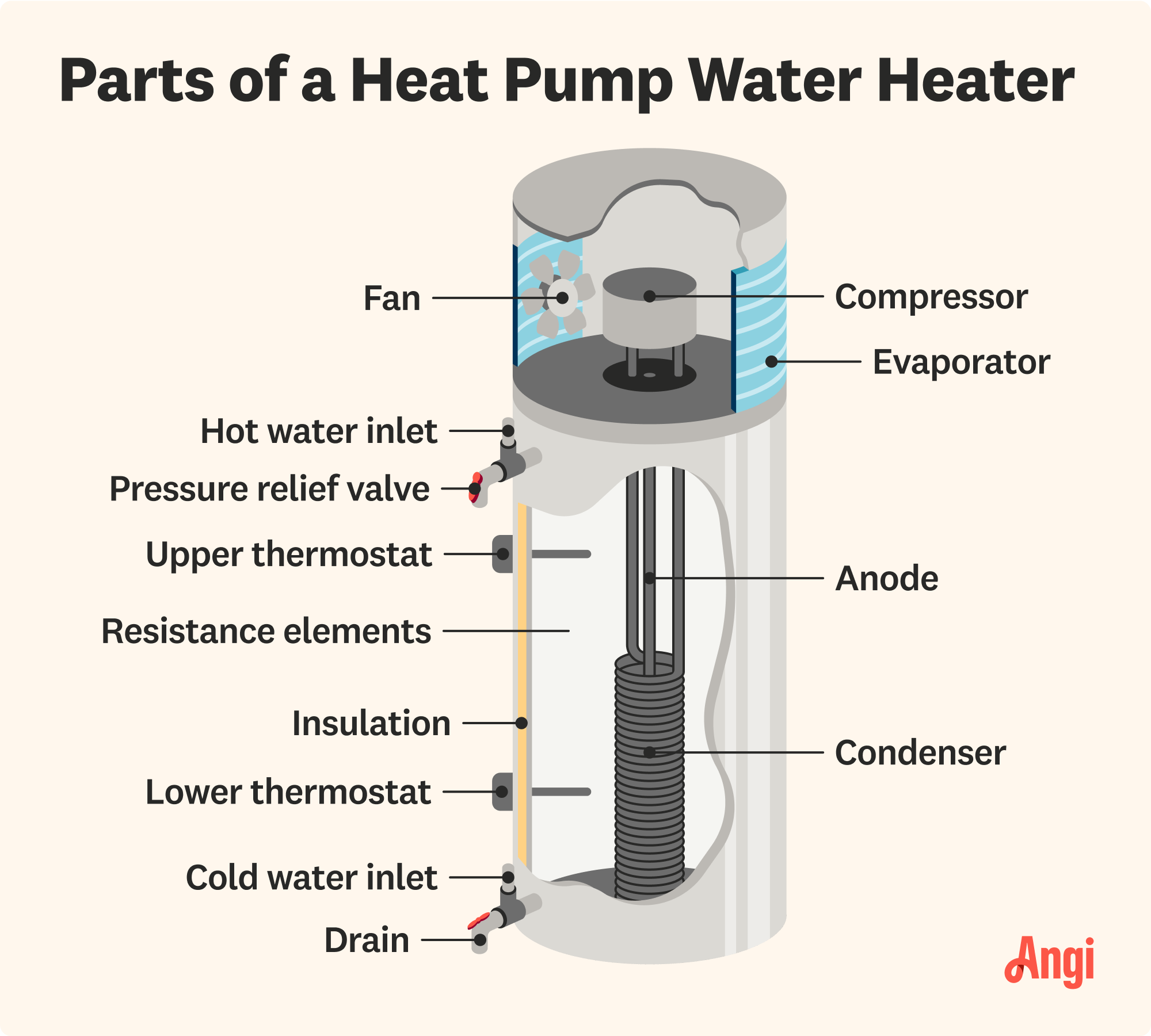
Heat Pump Water Heater Ongoing Costs
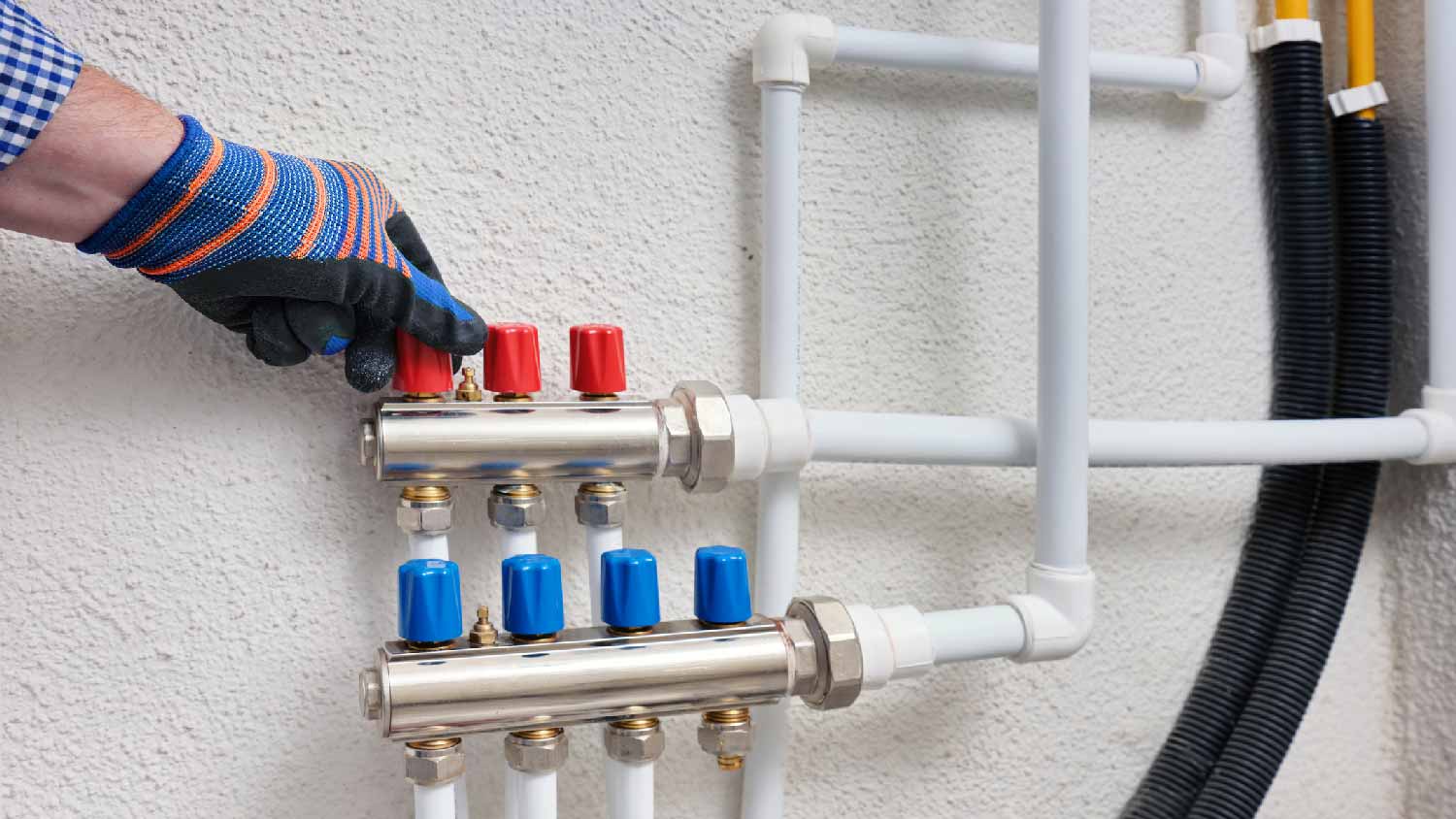
Preventative water heater maintenance is key to their efficiency and longevity. Some of these tasks you can do yourself, but we recommend the majority of work be done by a pro. The reason for this is twofold: they know the systems inside and out, and there is also a safety hazard when dealing with electric or gas appliances. Ongoing inspections amount to around $300 and should be performed at least once a year.
Small replacement parts may be required over time, but any true malfunctions can be prevented with a watchful eye and a good relationship with your inspector.
Installing a Heat Pump Water Heater Yourself or Hiring a Pro
Some of the more experienced DIYers may feel up to the task, but installing a heat pump water heater isn’t a job for typical homeowners. If it was simply a swap job it would be within the realm of possibility for most people, but there are plumbing and electrical considerations that require professional knowledge. For this reason, we strongly recommend leaning on a local water heater installation pro to complete the job. If you need another reason to hire a pro, keep in mind that many insurance policies and warranties will be voided if you install this appliance yourself.
Tips to Reduce Cost While Installing a Heat Pump Water Heater
The single largest dent you can make in the cost is by choosing a cost-efficient unit from the get-go. While you can negotiate somewhat with a pro, we don't recommend pushing too hard. This is specialized labor and is worth what they're charging. However, some other ways to save money while installing a heat pump water heater are:
Select a highly efficient model to keep electricity costs low.
Get multiple quotes and compare.
Choose a model that offers a rebate or tax incentive.
Install during the off-season.
Make sure your home is properly insulated.
Get the smallest unit possible without sacrificing liveability.
How Angi Gets Its Cost Data
Home is the most important place on earth, which is why Angi has helped more than 150 million homeowners transform their houses into homes they adore. To help homeowners with their next project, Angi provides readers with the most accurate cost data and upholds strict editorial standards. We extensively research project costs to develop the pricing data you see, so you can make the best decisions for you and your home. We rely on reputable sources, including the U.S. Bureau of Labor Statistics, academic journals, market studies, and interviews with industry experts—all to ensure our prices reflect real-world projects.
Want to help us improve our cost data? Send us a recent project quote to costquotes@angi.com. Quotes and personal information will not be shared publicly.
Frequently Asked Questions
One of the primary benefits of a heat pump water heater is how cost-effective it is. How much you save will depend on your water usage and electricity costs. That being said, we can ballpark savings for the average home of between $100 and $500 per year. You can increase that savings rate by researching and applying available energy incentives available in your area. If you really want to focus on cost, consider a tankless water heater.
On average, a tankless water heater should last between 10 and 15 years. Its lifespan will be affected by how much it's used, the effect of weather where your home is on the unit—colder is harsher and will shorten lifespan—and if the heater is maintained appropriately and regularly. There are many signs your water heater needs to be replaced, so pay attention to anything that changes with your heater or hot water.
You have more options for water heaters than ever before. The best one for your home depends on your hot water usage and budget. Some of the more common types of water heaters are the conventional gas heater, a heat pump water heater, or a tankless heater for smaller homes or those with less water demands. Some uncommon types are solar and point-of-use systems. Some homes may have a combination of two units, such as a large heat pump heater and a backup point-of-use system.
A heat pump extracts warmth from the air around the heater with refrigerant. This is then compressed to a high temperature and, with the help of a heat exchanger, circulated through the water tank. The water heats up when contacting the heat exchanger. This is more efficient than standard water heaters as it uses already warm air instead of creating heat with gas or electricity.
Yes, a heat pump water heater can work in colder climates but it’s much more effective where it’s warm. The reason is that the heat pump needs ambient warmth in the air to compress. The less warmth, the more compression required, thus using more electricity and offsetting the energy-efficient benefits.

